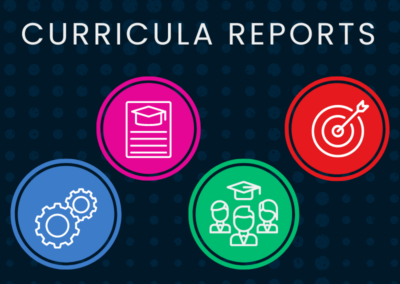Image: Safa British School
School is the place where most children learn how to interact with others, including those who look and act differently. The DEIJ International School Award highlights some of the exceptional initiatives international schools are now delivering to develop diversity, equity, inclusion and justice (DEIJ) throughout their school, not just for students but for all stakeholders.
Global events inspire DEIJ action
The Black Lives Matter protests of 2020 inspired many to speak out and demand change, and opened people’s eyes to social injustice and unconscious bias. Three of the four shortlisted schools in this year’s International School Awards DEIJ category implemented initiatives in response to this.
Safa British School in the UAE created a DiversCity curriculum to embed diversity and social justice into student learning, teaching and planning in order to ensure ongoing change. This involved CPD for teachers to develop a common understanding of diversity and social justice, alongside practical implications for planning and teaching the DiversCity curriculum. The school now has a dedicated area of the library for books supporting diversity, equity, and celebrated differences for all ages and stages.
Prompted by Black Lives Matter, the International School of Dakar in Senegal invited feedback from students, faculty, and parents, and hosted listening sessions for all groups within the school community to hear ensure all voices were heard. The school also worked with DEIJ consultant, Darnell Fine who delivered workshops for the Board, leadership team and faculty. This led to new Board policies and revised hiring priorities, placing diversity above International Baccalaureate experience when shortlisting for new appointments. This has resulted, in the past two years, of 40% of all new hires being people of colour. Student voice and action now takes an important role too. A high school social justice council is rethinking the notion of service-learning to focus on community partnerships, and students are empowered and supported to speak out.
Also as a result of the Black Lives Matter protests in 2020, current and former students of Dubai College in the UAE set up an Instagram account to speak out about their experiences of bias and racism. In response, the school apologised publicly and directly to every individual, introduced an anonymous reporting app to activate change across the entire school community, established a DEIJ working party, a DEIJ society, and introduced unconscious bias training for all staff and students.
Supporting SEN through remote learning
When schools had to quickly pivot to remote learning during COVID, children with special educational needs were sometimes overlooked, particularly in countries where SEN students are not well represented.
To avoid this, Brighton College Bangkok in Thailand implemented a remote learning SEN provision. This was a family-centric approach to supporting all students on the school’s SEN register and incorporated four crucial areas of need: social, emotional and mental health; cognition and learning; communication and interaction; and physical and sensory. The initiative included frequent training for staff, accessibility evaluation, and bilingual support. The provision ensured that most at-risk learners did not suffer during campus closures, but were empowered to produce some of the best progress and results that the school has seen, developing confident students who were able to manage their learning needs independently.
Brighton College Bangkok was awarded the Diversity, Equity, Inclusion and Justice International School Award which was sponsored by Nasen.
Click here to learn more about the award and the shortlisted initiatives.




